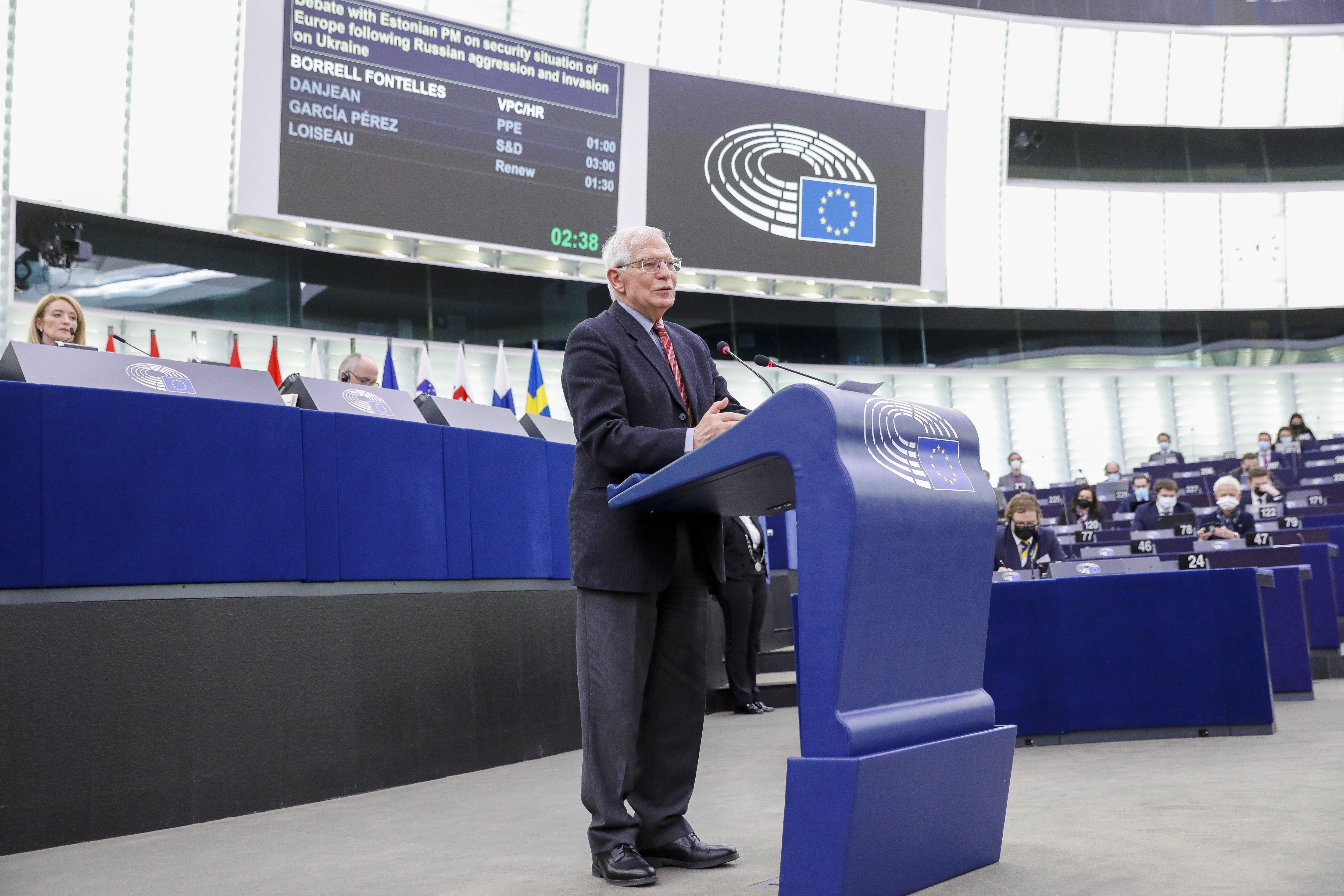The Russian invasion of Ukraine is currently taking over any subject that is debated in the European Parliament. This morning, EU foreign chief Josep Borrell took the unprecedented step of appealing directly to citizens of the European Union to drastically reduce the gas they consume in their homes. The high representative for foreign policy addressed MEPs in a speech lasting more than ten minutes, which mixed English and Spanish.
It was in Spanish that he was most explicit: "The first thing we have to do is cut the umbilical cord that connects us to Russia and the flow that allows the country to accumulate foreign reserves, and we can do that at the macro political level. We are aiming to cut consumption by two-thirds by the end of the year, which is difficult but achievable if we really put our minds to it. We need to apply macroeconomic measures, technical measures and also, I ask European citizens to turn down their heating at home, everyone needs to make an individual effort to cut their gas consumption, just as we cut water consumption if there is a drought or we put on a mask to fight viruses. Turn off the gas in your homes."
Josep Borrell in the European Parliament (audio: simultaneous translation to English)
Borrell warns of difficult times ahead
And he drew parallels: "What we have done with Covid, we must now do in favour of Ukraine, that is, by committing ourselves individually." Having made his own errors of tone in the last few weeks, Borrell spoke seriously in a speech which acknowledged the EU's missteps in the past: "We started late. When Putin occupied Crimea, we said we should reduce our dependence, and instead we increased it." Borrell does not deny the major problem: "We depend on Russian gas, so the first thing we must do is to end this dependence. When at five in the morning, two weeks ago, the phone rang and my chief of staff told me that the bombing had begun, I felt that we were leaving behind a page of history and entering a new era where Europeans have to be able to meet this challenge that Russia has set for us. We don't want to go to war, but it takes two to negotiate peace and only one to go to war. Putin's mental universe is different from ours, and that's why he did what he did."
"Addicted to Russian gas"
Thus, the pessimistic speeches from European politicians are coming one after the other. French president Emmanuel Macron already gave the firm view that very difficult times are ahead after his meeting with Putin, and today Borrell has put the same idea in different words in the European Parliament. And the Socialist politician's warnings were reiterated: "It is clear that we should have acted more quickly. All this requires us to take a very hard line now and we must be willing to pay the price because the consequences of this war will last a long time and shape European policies over decades. It will mean a change for the EU's security and defence policy, and the fragmentation of the world economy will be a side effect of us using the weapon of interdependence." And for that reason, he expressed his confidence that "Putin thought that our addiction to Russian gas would be enough to keep the EU out of Ukraine."
"A war as long as Covid"
Secondly, he also indirectly addressed other world powers and players: from the Arab states to India, making a call in the EU chamber to "carry out a great work of parliamentary diplomacy and taking the voice of Europe everywhere to explain what is really going on," especially to those who think that "Europe is the one who started the war in Ukraine." In a final statement, he also addressed the Russian people: "We must separate Putin from the Russian people, and consider the group of corrupt oligarchs separately from the Russian people who have had the courage to take to the streets to protest agaisnt the war and are now in prison". He added: "Russia, right now, is a gas station and a barracks." Returning to his comparison, he closed the speech again: "This war will stretch on as Covid has" as he announced a new package of economic measures against Russia.

